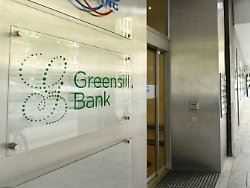Wednesday, March 03, 2021
Suspected balance sheet manipulation
Bafin closes Greensill Bank
The Bafin pulls the rip cord at Greensill Bank. Due to the threat of over-indebtedness, the financial supervisory authority stops all payments and payments made by the institute. The customer traffic is closed. In addition, the suspicion of balance sheet manipulation is strengthened.
The financial supervisory authority Bafin closes the turbulent Bremer Greensill Bank AG. The subsidiary of the financial conglomerate Greensill will be closed to customers with immediate effect, said the financial regulator. The moratorium is intended to secure assets. A sale and payment ban was issued due to the threat of over-indebtedness. At the same time, the supervision filed a criminal complaint against the institute, as a spokesman for the Bremen public prosecutor said on request. According to the "Financial Times" there is suspicion of balance sheet manipulation. This was the result of an audit by the auditing company KPMG.
According to the Bafin, Greensill Bank AG has no systemic relevance. Their plight therefore posed no threat to financial stability. The total assets of the Bremen-based institute at the end of 2020 were around 4.5 billion euros. The Bafin had already appointed a special representative at the bank.
Bremer Greensill Bank AG emerged from Nordfinanz Bank. In addition to financing for companies, the institute also offers overnight and fixed-term deposits, attracting visitors with unusually high interest rates. The private bank is part of the Greensill Group. Founded in 2011 by ex-banker Lex Greensill, the company plays an important role in supply chain financing. This involves a short-term cash advance that gives companies time to pay suppliers.
Greensill sees itself as a refinancer
Greensill Capital pays a supplier the invoice faster than the client could – and receives a discount in return. According to the Bafin, Greensill Bank AG sees itself as a refinancer for the group. Greensill bundled the receivables in bond-like securities and sold them to investors. However, according to media reports, investors recently had doubts about what put the financial group under pressure. Greensill Capital is based in London, the parent company Greensill Capital in Australia.
In view of the impending bankruptcy, the bank had already tried to reassure its customers. A spokesman for the institute said that customers 'savings deposits were protected by the German private banks' deposit protection fund. At the end of 2019, liabilities to customers amounted to just under 3.3 billion euros according to the bank's annual financial statements. The institute collected around a billion of these from private investors via portals such as "Weltsparen" and "Zinspilot", according to a report by the rating agency Scope. The rest is accounted for by institutional investors and corporate customers.
In the online portal "Zinspilot" operated by Fintech Deposit Solutions, there are inquiries from customers who have invested their money at Bremer Bank, as a fintech spokeswoman said. The bank also informed the company that it did not want to take up any additional deposits. As a result, the Greensill products were withdrawn from the offer. The Fintech Raisin, which operates the "Weltsparen" platform, said that they had brokered fixed-term deposits with a volume of several hundred million euros to 15,000 customers at Greensill Bank.
Dirty deal with steel magnate?
Savings deposits from private customers are protected through the deposit protection fund of the private banks. In the case of Greensill with up to 75 million euros per customer. The deposits of institutional investors such as banks, other financial institutions, investment firms and local authorities are no longer protected as of October 1, 2017. The fund intervenes in the event of a bank insolvency. Due to the imposed moratorium, this case could now arise.
According to insiders, Greensill Bank has long been in the sights of the Bafin. She has been checking the processes there since last summer. A special commissioner of the Bundesbank now controls the business of Greensill, as a spokeswoman for the Bundesbank said. According to media reports, the background is that the bank is said to have issued a large part of its deposits as loans to the companies of the Indo-British steel magnate Sanjeev Gupta. Its company Liberty Steel failed with the takeover of the steel division of Thyssenkrupp.
.
